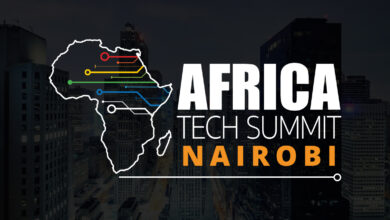Talent Platforms or the “Human Cloud”: Redefining Work in the Digital Age

The world of work is undergoing a significant transformation, fueled by rapid technological advancements and changing attitudes toward traditional employment. In this evolving landscape, talent platforms, often referred to as the “human cloud,” are emerging as a powerful force. Consequently, they are reshaping the way individuals and organizations connect, collaborate, and contribute. In this article, we will delve into the concept of talent platforms and explore their impact on the modern workforce.
Understanding the human cloud:
Specifically, the term “human cloud” encompasses a wide range of digital platforms that facilitate the connection between individuals with specific skills, often referred to as “talents,” and organizations seeking those skills for short-term projects, tasks, or specialized roles. These platforms operate in a similar fashion to other online marketplaces, but instead of goods and services, they offer access to a global pool of human expertise.
How talent platforms operate:
Talent platforms operate on the principles of flexibility, scalability, and specialization. Here’s how they typically function:
- Diverse Talent Pool: Moreover, talent platforms offer access to a diverse pool of talents from around the world, thereby allowing organizations to find the exact skills they need for specific projects.
- Project-Based Work: Instead of traditional full-time employment, talents on these platforms engage in project-based or gig work. This benefits both individuals seeking flexibility and organizations requiring specialized skills.
- Matching Algorithms: Advanced algorithms match talents with projects based on their skills, experience, and availability; consequently, they ensure the best fit for both parties.
- Remote Collaboration: The digital nature of talent platforms enables remote collaboration, breaking down geographical barriers and promoting a global talent exchange.
Benefits for Talents:
- Flexibility: Talents can choose projects that align with their expertise and interests, creating a flexible work arrangement.
- Global Reach: The human cloud allows talents to access job opportunities from all corners of the world, transcending geographic limitations.
- Skill Utilization: Talents can fully utilize their unique skills, contributing to projects where their expertise is most valued.
- Portfolio Building: Engaging in diverse projects helps talents build a robust portfolio and expand their professional network.
Benefits for Organizations:
- On-Demand Expertise: Organizations can quickly access specialized skills without the need for lengthy recruitment processes.
- Cost-Efficiency: Hiring talents for specific projects can be more cost-effective than maintaining a full-time workforce.
- Scalability: Organizations can easily scale their workforce up or down based on project needs.
- Innovation: Access to a diverse range of talents fosters innovation and creativity within the organization.
Impact on the Future of Work:
The rise of talent platforms has far-reaching implications for the future of work:
- Hybrid Workforce: Organizations are increasingly adopting hybrid workforce models, combining full-time employees with on-demand talents.
- Skill Development: Professionals are incentivized to upskill and reskill to remain competitive in the gig economy.
- Flexibility as a Perk: Flexibility becomes a sought-after perk for talents, encouraging more individuals to embrace freelancing.
- Global Collaboration: The human cloud enables cross-border collaboration and cultural diversity, enhancing problem-solving and innovation.
In conclusion, talent platforms, or the “human cloud,” represent a paradigm shift in how work is organized and executed. With its emphasis on flexibility, specialization, and remote collaboration, this model is set to redefine the employment landscape, offering unprecedented opportunities for both talents and organizations to thrive in the digital age.




